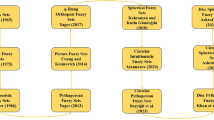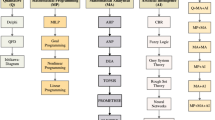Abstract.
Consider the following problem: a set of candidates {x, y, z} has to be ranked from best to worse by a committee. Each member of the committee provides his own ranking of the three candidates and you decide to use the Borda method to aggregate the rankings. The resulting scores are as follows: 107 for x, 106 for y and 51 for z. Would you conclude that x is better than y? Probably not, because the difference between the scores of x and y is small. The only conclusion you would draw is that z definitely is the worst candidate. But, is it meaningful to consider differences of Borda scores? We characterize the Borda method in this new framework and find conditions that are very close to those characterizing the classical Borda method. Throughout our paper, we consider a generalization of the Borda method designed to aggregate fuzzy relations.
Similar content being viewed by others
Author information
Authors and Affiliations
Additional information
Received: 2 March 1998/Accepted: 5 May 1999
Rights and permissions
About this article
Cite this article
Marchant, T. Does the Borda rule provide more than a ranking?. Soc Choice Welfare 17, 381–391 (2000). https://doi.org/10.1007/s003550050169
Issue Date:
DOI: https://doi.org/10.1007/s003550050169




